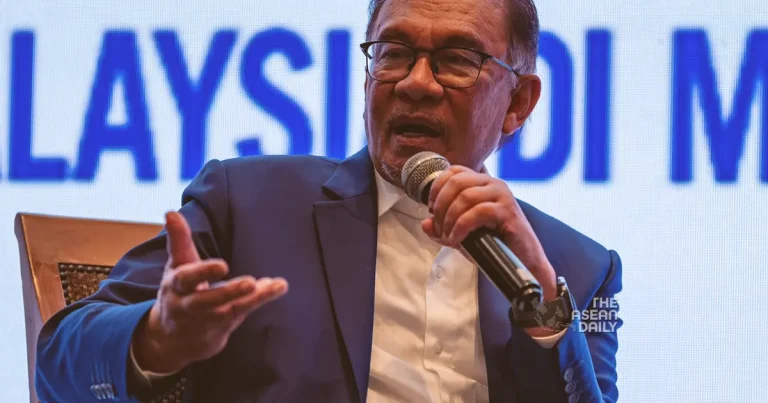4-8-2024 (KUALA LUMPUR) Anwar Ibrahim, Malaysia’s bold and determined prime minister, has once again demonstrated his unwavering commitment to pursuing a “fiercely independent” foreign policy. His decision to formally submit Malaysia’s application to join BRICS (Brazil, Russia, India, China, and South Africa) this week is a testament to his willingness to chart an unconventional course for the nation.
While Anwar chose to announce his intention to join the grouping during Chinese Premier Li Qiang’s visit to Malaysia in June, the move was not entirely surprising for those familiar with the prime minister’s long-standing advocacy of issues that lie at the core of BRICS’s thinking. If the move was intended to signal an interest in forging stronger relations with China, there were certainly other avenues Anwar could have pursued.
Instead, Anwar’s comments about BRICS came as a logical extension of the issues he has consistently raised – the ambition to establish an Asian Monetary Fund and the question of de-dollarization. These are matters that have been on his mind, and he has been discussing them not only with Beijing but also with various other global players.
Moreover, Malaysia’s potential accession to BRICS presages the nation’s role as a pathbreaker within ASEAN, a region where it has often taken the lead in championing bold and forward-thinking agendas. This is particularly significant as Malaysia prepares to assume the role of ASEAN chair in 2025.
Throughout its history, Malaysia has been a trailblazer in the region. The country’s first prime minister, Tunku Abdul Rahman, played a pivotal role in establishing the Non-Aligned Movement, while Mahathir Mohamad, during his two stints as prime minister, emerged as a champion of the Global South and a staunch supporter of Japanese industry, leading debates about “Asian values.”
Anwar, in keeping with this tradition, is bucking the favored regional orthodoxy. He sees no need to choose between the United States and China, rejecting binary choices and instead embracing new links and alliances. As he asserts, “We can no longer accept the scenario where the West wants to control the discourse because the fact is they are not colonial powers anymore, and independent countries should be free to express themselves.”
The decision to join BRICS seems to be a choice for the future, a pragmatic assessment of the shifting global power dynamics. A PwC forecast expects China to become the world’s largest economy by 2050, with India overtaking the United States to claim the second spot. Indonesia, Brazil, and Russia are projected to occupy the fourth, fifth, and sixth positions, respectively.
In the decades to come, the structure of power will undoubtedly shift. If in 2016, China and India accounted for 25 percent of the global share of GDP, by 2050, they will contribute 35 percent. Both the United States and the European Union will experience declines in their share going forward.
Viewed from another perspective, the contraction is clear. In 1995, the seven biggest emerging economies (China, India, Indonesia, Brazil, Russia, Mexico, and Turkey) were half the size of the G7 (United States, United Kingdom, Canada, Japan, Germany, France, and Italy). By 2050, the tables will be turned, with the E7 potentially becoming twice the size of the G7.
Anwar has got his numbers and trends right, and he is taking a pragmatic look at how things will unfold. He is not content with a quiet understanding of these shifts but likely seeks to provide the leadership that will tilt the balance toward the future.
While Thailand has expressed interest in joining both BRICS and the Organisation for Economic Co-operation and Development, other Southeast Asian members are less enthused about the BRICS grouping. Singapore and the Philippines have been reserved on their stance, and are unlikely to join. Indonesia, despite being courted by China and India, has also shown reluctance and instead opted to join the OECD.
Anwar is sensitive to the economic injustice that developing countries have suffered at the hands of larger, developed economies – a rallying issue that BRICS holds dear. He shares the same ideological concerns as the BRICS nations, and he likely hopes to convince ASEAN member states that they would benefit by being part of the organization.
Next year, when Malaysia assumes the ASEAN chair, Anwar will have a splendid opportunity to raise the issue of BRICS among his ASEAN comrades. Even if he does not explicitly mention BRICS, he will undoubtedly flag concerns about participation in global supply chains, trade discrimination, the outdated global financial system, the inordinate power in the hands of the developed world, and the need to support multilateralism and a more balanced world order – concerns that BRICS grapples with.




